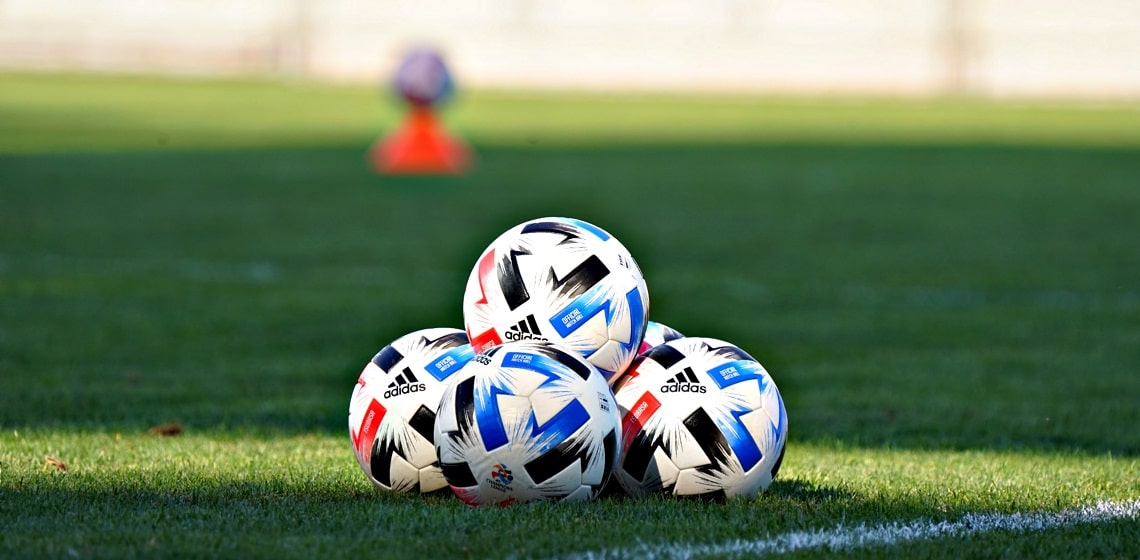Meet 10 Portuguese football teams with history
They once shone in big stadiums, but today they compete in secondary divisions. There are Portuguese football teams that have dozens of participations in the Premier League and that are currently struggling to return to the matches with the "big ones". Get to know some of these teams.
A national championship, attendance in UEFA competitions and players in a World Cup are some of the “achievements” of several Portuguese football teams with a great history, but which are currently competing away from the big competitions. The reasons for the “fall” of these clubs, some of which had to start over from the lowest levels of district football championships, range from financial difficulties, poor management and legal punishments to, simply, loss of sporting competitiveness. Several of the stadiums where the greatest achievements of these 10 teams were achieved no longer exist, but most continue to have loyal and dedicated supporters, who nurture the hope of seeing their beloved club return to the limelight of football in Portugal. If you like football-related curiosities, enjoy this All About Portugal article, which contains references to José Mourinho, Zinédine Zidane, Edgar Davids, João Cancelo or Deco.
CF " Os Belenenses"
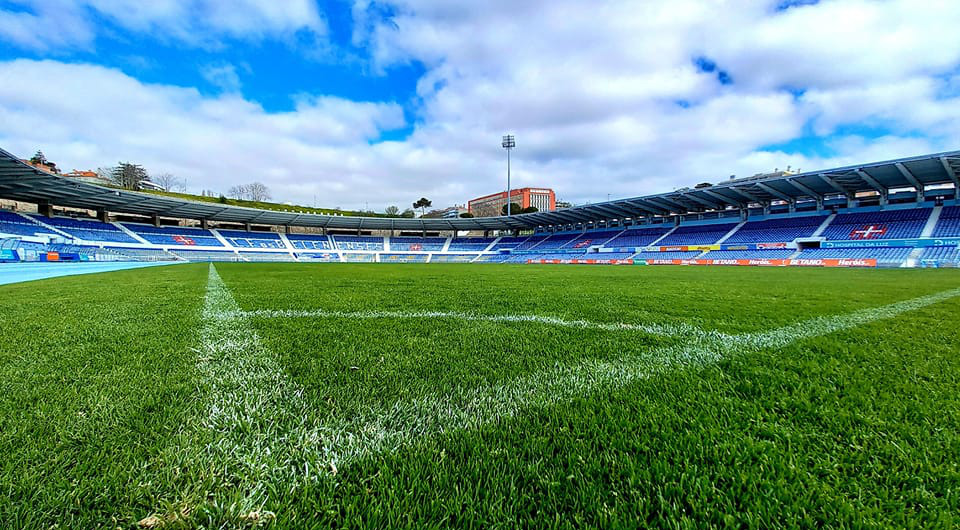
Until 2000, this popular Lisbon club could be proud of being the only football club winning the national championship besides the three so-called “big ones”: Benfica, FC Porto and Sporting. From then on, it began to share the merit of this achievement in 1945/46 with Boavista and, despite not having competed in the Premier League since 2017/18, it remains the fifth club with the most appearances in the main championship, a total of 77, being surpassed only by the three main clubs and by Vitória Sport Clube (also known as Vitória de Guimarães). In addition to the national title, it also has three Portuguese Cups in his history, the last one won in the 1988/89 season. It also has more than a dozen participations in European competitions, from the UEFA Cup (today Europa League) to the extinct Inter-Cities Fairs Cup, UEFA Cup Winners' Cup and Intertoto Cup. It had three players representing Portugal in the 1986 World Cup and was invited to play with Real Madrid at the opening of the Santiago Bernabéu Stadium. Restelo Stadium is considered one of the most beautiful in Portugal and one of its greatest stars was the scorer Matateu, who in 13 seasons, between 1951 and 1964, scored 220 goals in 280 games.
Vitória de Setúbal
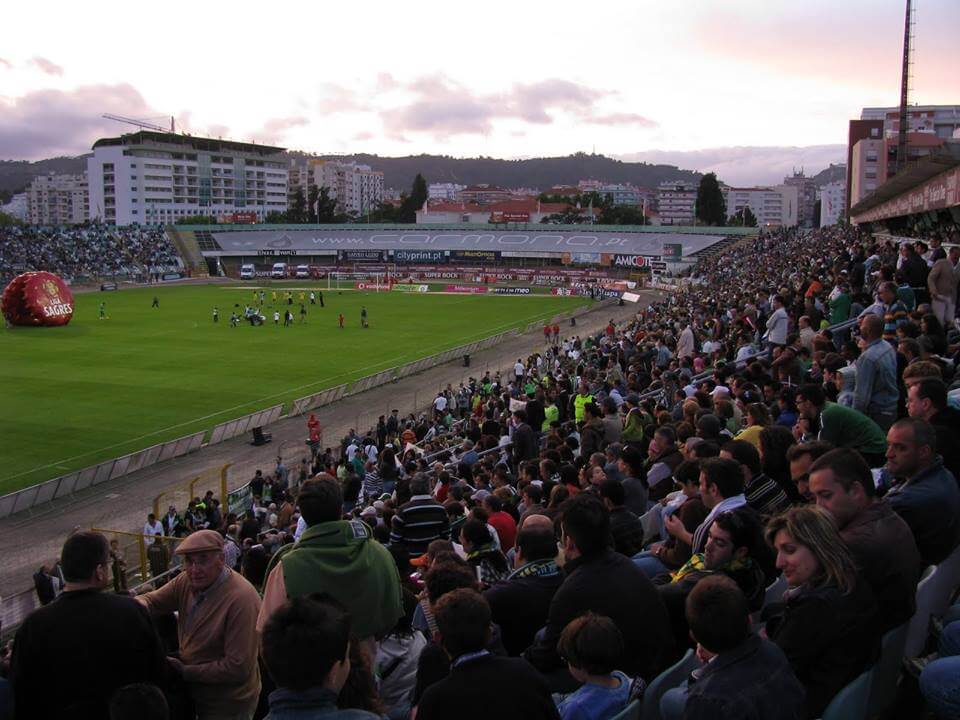
With three Portuguese Cups, the last one in 2004/05 and a League Cup, in 2007/08, this is another of the Portuguese football teams with more history and which, currently, is “lost” in the secondary divisions. It has 72 appearances in the Premier League and experienced its best moment in the 70s, when it was vice-champion once and was in the lowest place on the podium three times, under the guidance of José Maria Pedroto, an outstanding coach in the Portuguese football. It was also during this period that reached twice the quarter-finals of the UEFA Cup. In total, it has more than 15 participations in European competitions. The Nigerian striker Rashid Yekini was one of the most internationally known players to wear the Vitória Futebol Clube jersey. In the 1993/94 season he was crowned top scorer in the Portuguese championship and was called up to represent his country in the 1994 World Cup, a competition in which he scored a goal, whose celebration while clinging to the net is still remembered by many. He was elected the best African player, won an African Cup of Nations and also participated in the Olympic Games. The club's last season in the Premier League was 2019/20.
Académica de Coimbra
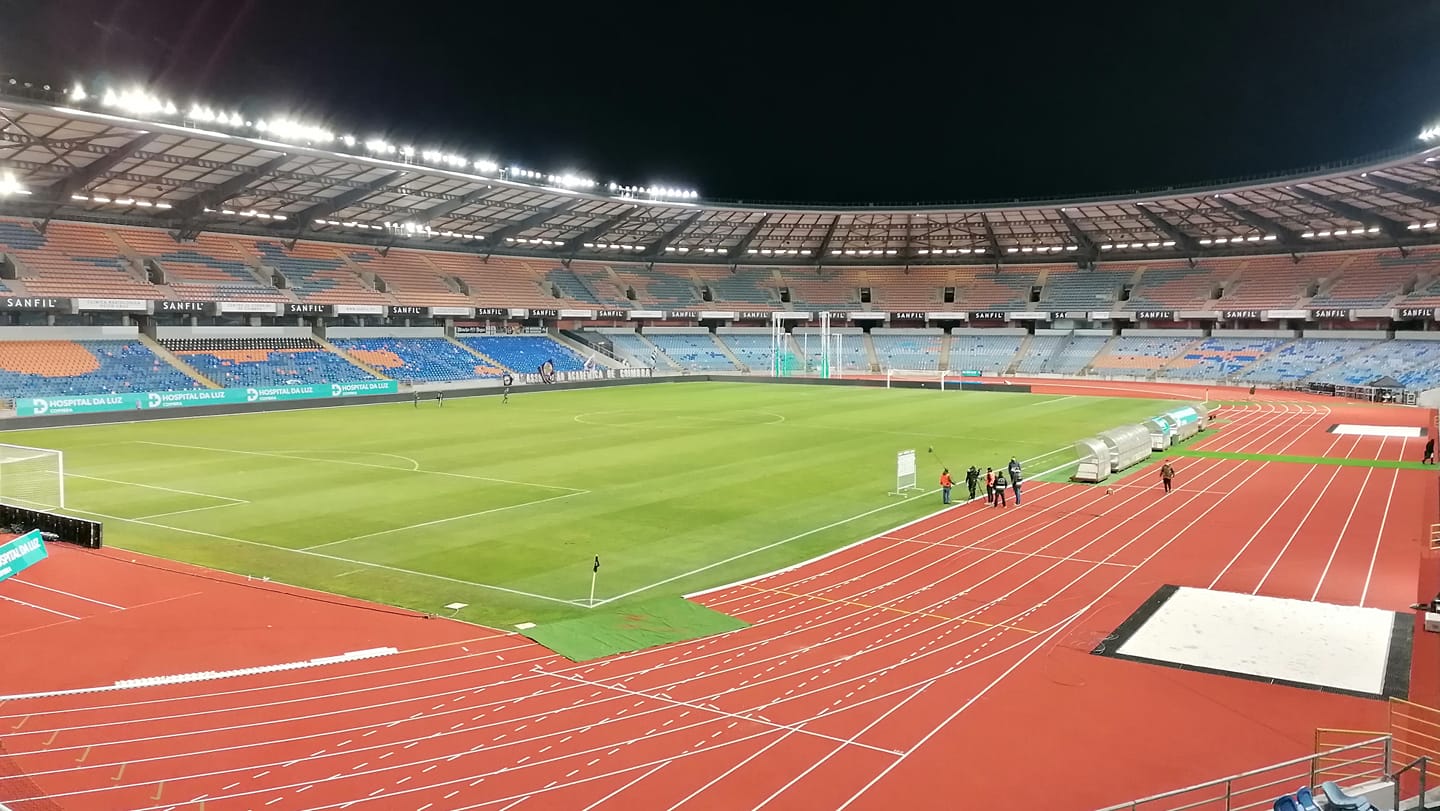
It is known as the “students” team, given its close connection with the University of Coimbra and the fact that for many years it had mostly university students in its squads. It has 64 appearances in the Premier League, the last one in 2015/16, and is one of the Portuguese football teams with the most history and tradition. Its best ranking ever was achieved in the 1966/67 season, when it was national vice-champion. He has two Portuguese Cups, one in 1938/39, the first in history, and the other in 2011/12, in a team that featured Cédric Soares and Adrien Silva, who in 2016 were crowned European champions for Portugal. Éder, the “hero” of this historic achievement, also joined Académica for four seasons. The club has participated four times in European competitions, reaching the quarter-finals of the Cup Winners' Cup in 1969/70. One of its most famous coaches was André Villas-Boas, in his debut as head coach, in the 2009/10 season. This was followed by Futebol Clube do Porto, where he won the championship, the Portuguese Cup and a Europa League, and spent time at clubs such as Chelsea or Tottenham. Sérgio Conceição also spent time at the club as a coach and player in the youth teams.
Beira-Mar

The high point in the history of this popular club from Aveiro city was reached in the 1998/99 season when it won the only Portuguese Cup in its history. All thanks to a goal by Ricardo Sousa, son of coach António Sousa, who also played for the club and who won a European Champion Clubs' Cup with Futebol Clube do Porto in 1986/87. Interestingly, the season that ends with the most important trophy in the club's history turned out to be bittersweet, as it also culminated in relegation. Thus, its only participation in a European competition, in the UEFA Cup, occurred when the team was competing in the Second League. The best classification ever in the main division was a sixth place in 1990/91, on equal terms with the fifth place. One of the stars of the team was the Egyptian midfielder Magdi Abdelghani, who represented his country at the 1990 World Cup. Although it was in the downhill phase of his career, Eusébio, former glory of Benfica and the Portugal national team, was the biggest athlete who wore the Beira-Mar yellow and black jersey. It registers 27 participations in the Premiere League, the last one in 2012/13.
Barreirense

Gone are the days when Barreirense was seen as a “nursery” of great players for Portuguese football and “called the shots” in the Premier League. His best ranking was a fourth place in 1969/70, in a squad in which one of the highlights was goalkeeper Manuel Bento, who shone for Benfica and the Portuguese national team. In the Portuguese Cup, the club reached the semi-finals five times in the 40s and 50s, the last two in 1956/57 and 1957/58, in squads in which striker José Augusto shone, who would win twice European Champion Clubs' Cups at Benfica and contributing to Portugal's third place in the 1966 World Cup. Other great players to make the “trip” from Barreiro to Benfica were Chalana and Carlos Manuel. Nowadays, João Cancelo, born in the “industrial” city, was the best player to represent Barreirense, even in the younger teams, before representing clubs like Inter de Milan, Juventus, Manchester City or Bayern Munich. The last appearance, out of a total of 24, by Barreirense in the main championship took place in 1978/79 and the D. Manuel de Mello Stadium, which even hosted a game of the Inter-Cities Fairs Cup, was demolished in 2008.
Salgueiros
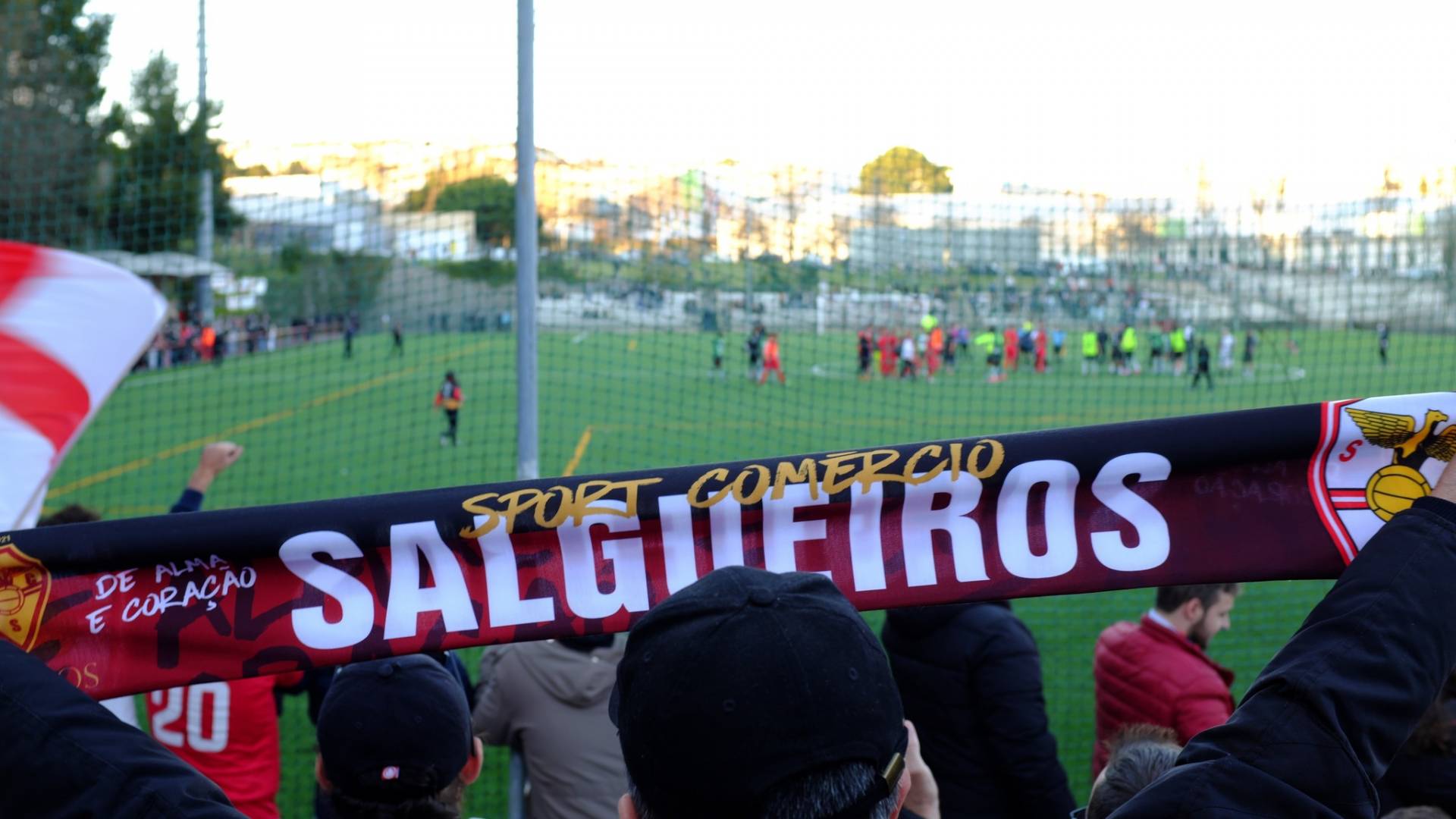
Although he only represented the club for six months, the Portuguese-Brazilian Deco was probably the most successful footballer to ever represent this popular Porto club. The Portuguese international midfielder has won two Champions Leagues and a Europa League throughout his career, having successfully represented FC Porto, Barcelona and Chelsea. Another internationally known player who represented Salgueiros in the Premier League, and also in the youth team, was Ricardo Sá Pinto, a striker who was an idol for Sporting and Real Sociedad. Salgueiros has 24 participations in the main division, most of them in the 80s and 90s, and their best ranking was a fifth place in 1990/91, which earned them an unprecedented qualification for the then UEFA Cup. In what was their only European clash, Salgueiros faced the French at Cannes, where Zinédine Zidane was starting to emerge. The last presence in the Premier League took place in 2001/02 and the club was unable to compete after financial problems. He returned to football in 2008/09 in the districts of Porto with great support from his faithful fans, outside the historic Estádio Vidal Pinheiro, demolished in 2006.
Atlético
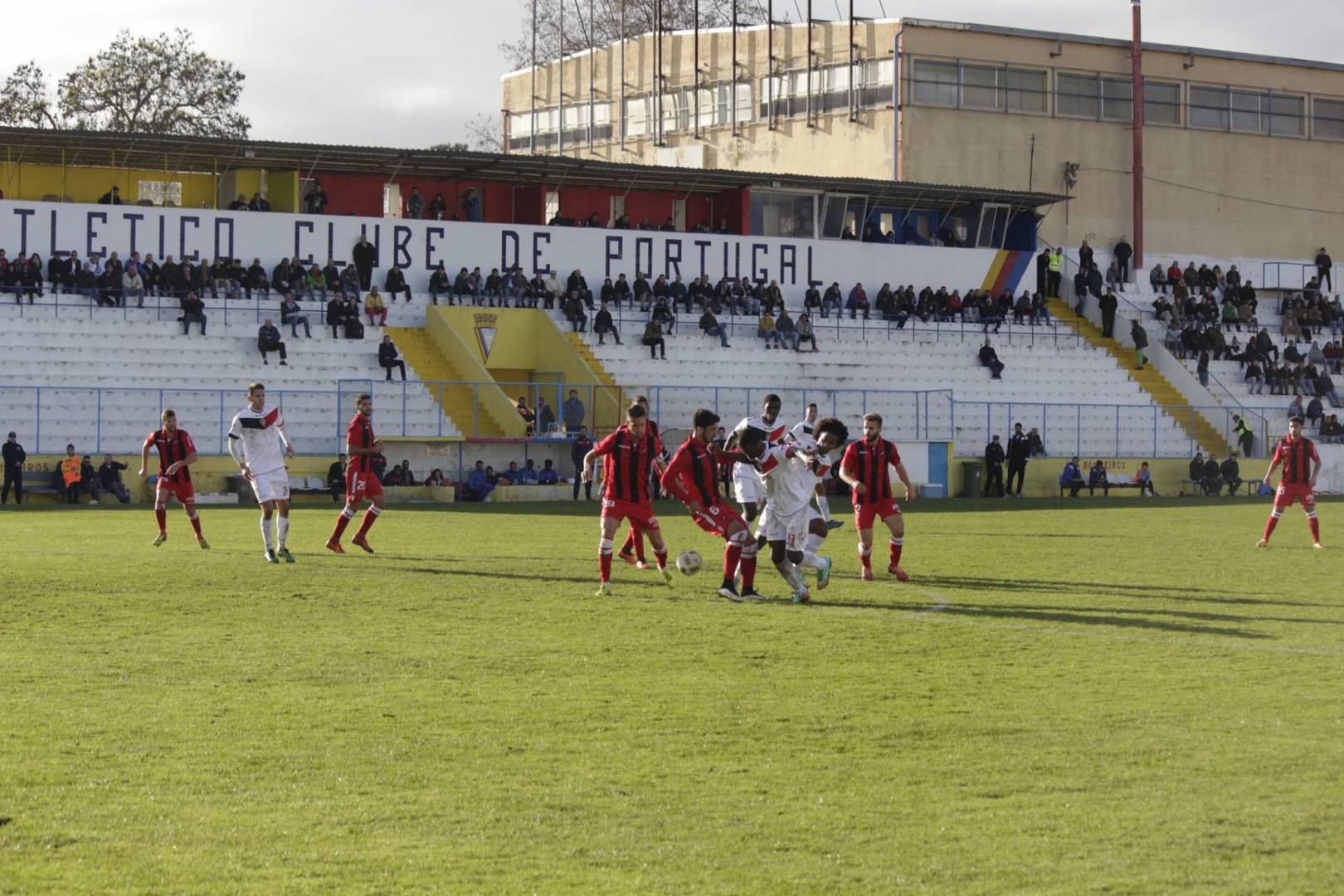
It is, of the 10 Portuguese football teams mentioned in this article, the one that has not played in the Premier League for the longest time, despite its 24 presences guarantee it a place in the “top 20”. This historic club from Lisbon experienced its golden times in the distant 40s, with two third places in the 1943/44 seasons, in what was its debut, and 1949/50, when it was only behind Benfica and Sporting. At that time, the club's "golden" age, it reached the Portuguese Cup final twice, in 1945/46 and 1948/49. Atlético added participations in the Premier League in the 50s, 60s and 70s, with the last presence taking place in 1976/77. Unlike other clubs, it managed to preserve the emblematic Estádio da Tapadinha, opened in 1926, until today. One of the most titled players who represented the club for several seasons was Germano de Figueiredo, central defender, who would win two European Champion Clubs' Cups with Benfica and who would also be called up to represent Portugal in the 1966 World Cup. His first internationalization were achieved precisely at the service of Atlético.
Varzim
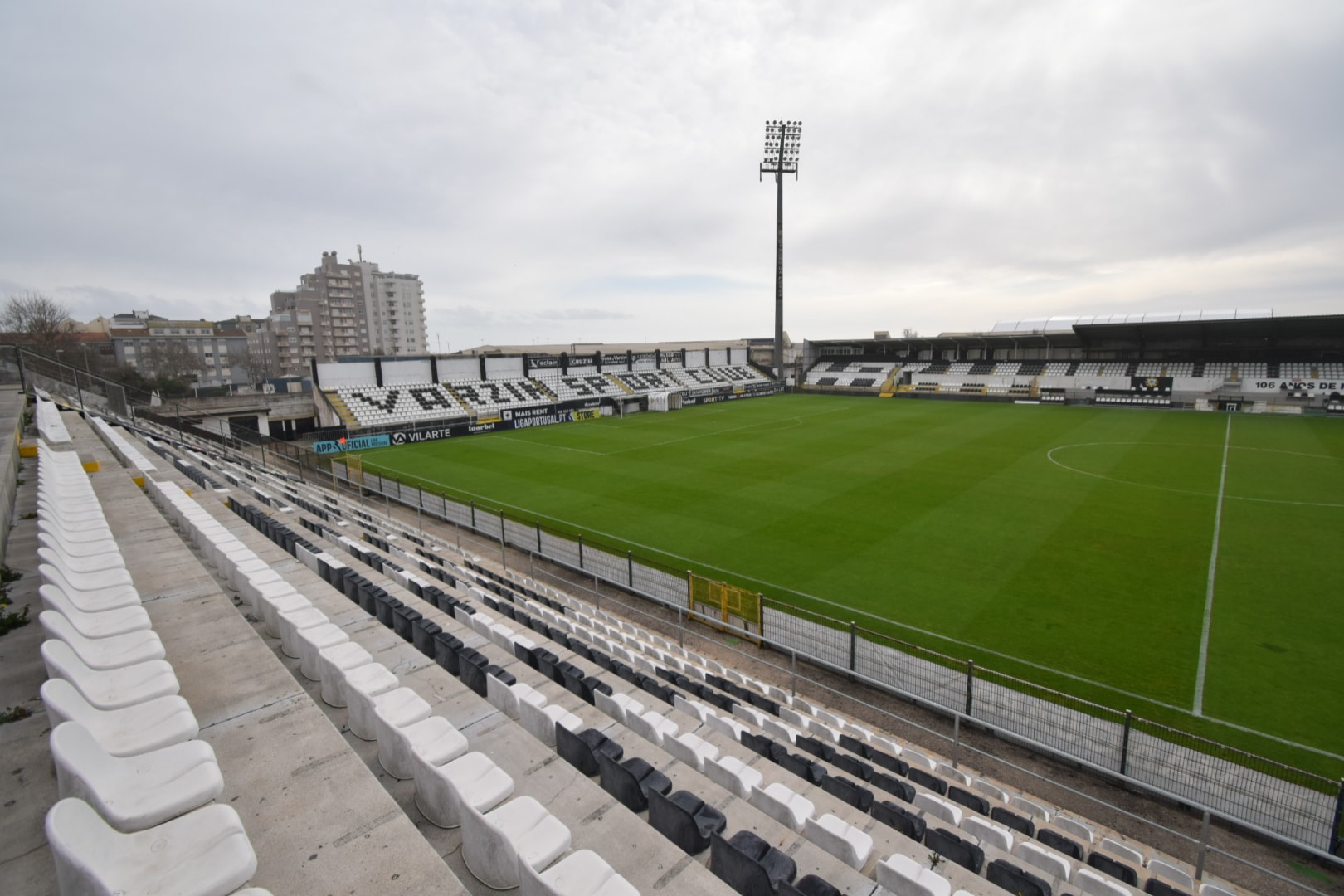
Here is another club from the Porto area that has very loyal and dedicated fans, despite not having played in the Premier League since 2002/03, in what was its 21st participation in the main division. Its best ranking was a fifth place in 1978/79, a “golden” time for the club, as that achievement was between two presences in the Portuguese Cup semi-finals in 1977/78 and 1979/80, which would come to repeat in 1984/85. António André and Lima Pereira, who became European champions with FC Porto in 1986/87, were among the best known players to represent the club. Other athletes who took Varzim’s name across borders were the Angolans Figueiredo and Mendonça, who represented the “sea wolves” when they were called up for the 2006 World Cup. Another famous Angolan who represented Varzim was striker Vata Matanu Garcia, who scored a controversial goal for Benfica, in a European Champion Clubs' Cup semi-final against Marseille, reminiscent of Maradona's famous “hand of God”. Varzim has a tradition of training athletes, the most mediatic case being that of Bruno Alves, European champion in 2016.
Olhanense

Recurrent presence in the Premier League in the 40s of the last century, the club from the Algarve city of Olhão has 20 participations in the main division. Until the 1974/75 season it was competing among the “greats” and only returned 35 seasons later in 2009/10, and where it remained until 2013/14. The 1940s were really the “golden” era for the club, reaching a historic fourth place in 1945/46, which still stands as the best ever ranking of an Algarve club in the Premier League. It was also at that time, more precisely in 1944/45, that the club came close to winning the Portuguese Cup, only being defeated in the final by Sporting. Striker Fernando Cabrita, Portugal's coach at the 1984 European Championship, was one of the stars of that team and was summoned to represent the country when he played for Olhanense. Edgar Davids, a former Dutch star who represented clubs such as Ajax, AC Milan, Juventus or Barcelona, also worked for the club as a coach. The experience, which was not very successful, took place in 2020/21 when the club played in the Campeonato de Portugal, the fourth division of Portuguese football.
União de Leiria
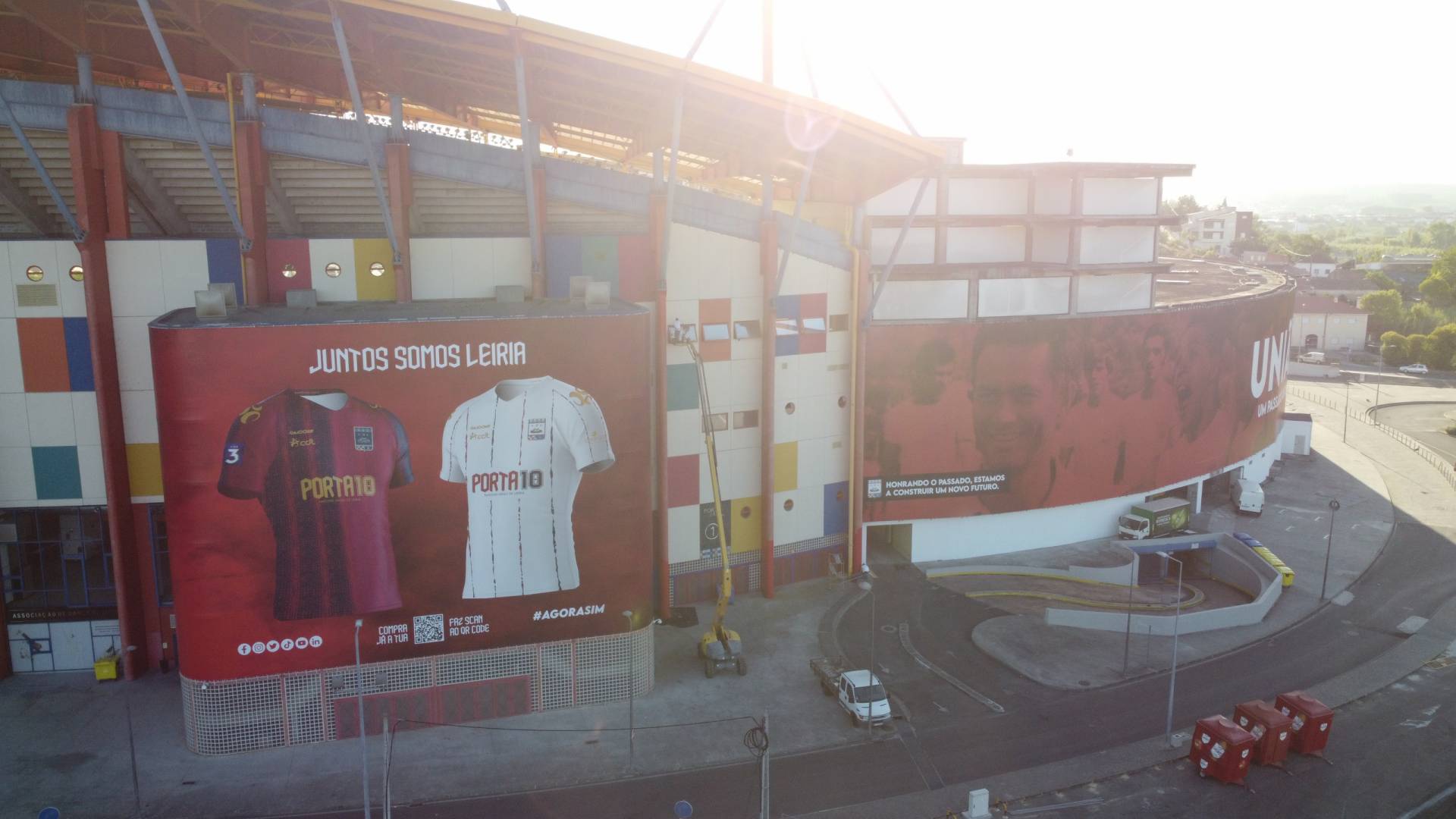
This club, which has not played in the Premier League since 2011/12, is indelibly linked to José Mourinho's career filled with titles. In fact, despite having only managed the Leiria team for half a season (2001/02), it was his good performance in what was his second experience as head coach that catapulted him to FC Porto, where he would win a Liga of Champions and a Europa League, an achievement that he would repeat, respectively, at the service of Inter Milan and Manchester United. He has also coached Chelsea, Real Madrid, Tottenham and AS Roma, where he won a Conference League. In all, União de Leiria has 18 participations and its best rankings ever were two fifth places. The first in 2000/01, when the coach was Manuel José, winner of four African Champions Leagues, and in 2002/03, when he also reached the final of the Portuguese Cup. The club twice reached the former UEFA Cup and in 2004 reached the UEFA Intertoto Cup final. The Brazilian Derlei and the Portuguese international Nuno Valente, who accompanied José Mourinho on his way to FC Porto and won the Champions League and Europa League, were among the best players to represent União de Leiria.
Recommended
